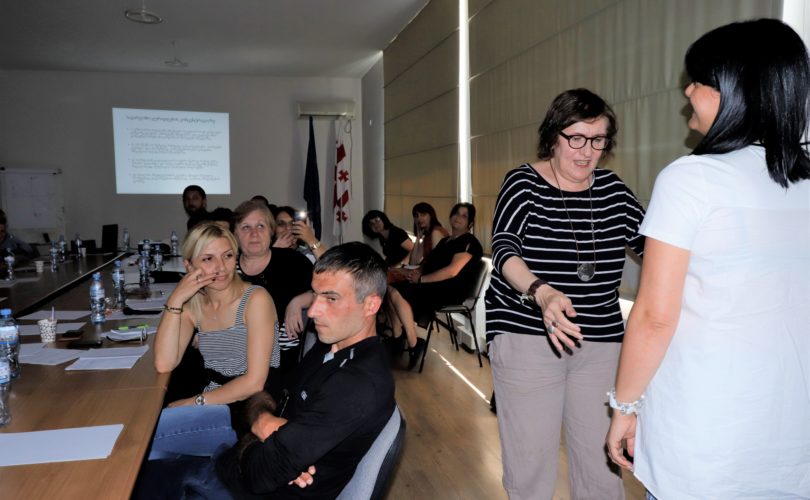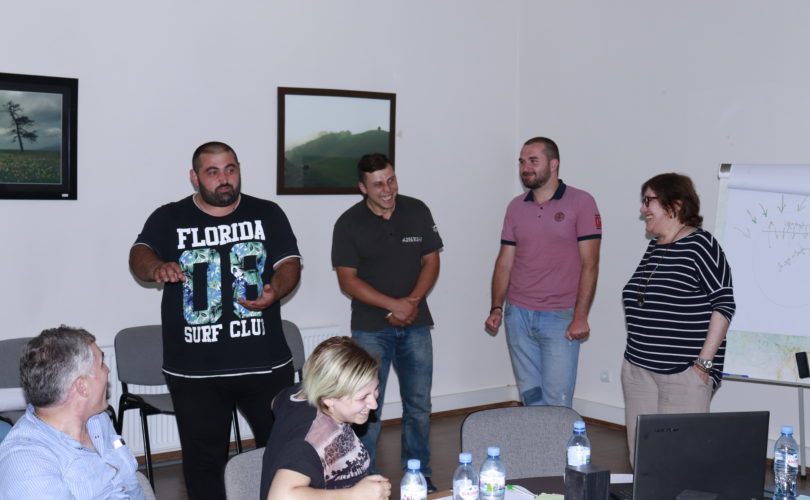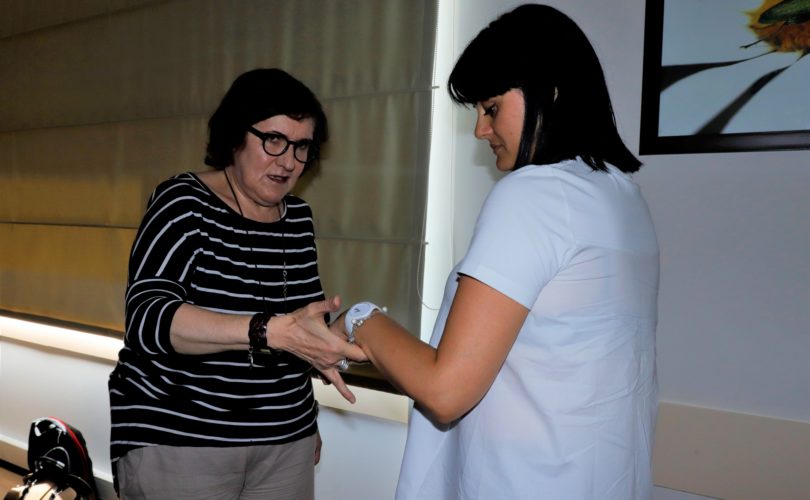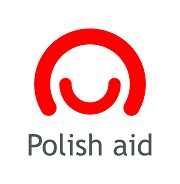
The second session of the training for volunteers was held on August 10-11, 2019. The two-day session was delivered by a leading Georgian psychologist and EU expert, Ms. Ekaterine Tavartkiladze. The main objective of the training was to identify possible stressors in emergencies and strategies on how to cope with them. The volunteers were introduced to stress management techniques and practical tools, while the particular focus was on how children react to stress.

The following topics were covered during the 2nd training session:
1. Introduction: Stress in professional settings (negative factors in the working environment, the signs of stress, the causes and results of professional stress).
2. Stress management techniques and how to deal with stress in emergencies (different practical tools to regulate one’s emotional state – breathing techniques, focus, relaxation, inspiration).
3. Communication strategies to deal with people affected by fire (active listening, simple language, phrase and/or command formulation, two stages to communicate with victims and injured people – during and after the emergency).
4. Crowd management (panic and its stages, how to respond effectively during the panic phase)

The training session was rich in interactive exercises, thanks to which the participants developed skills in terms of how to work and communicate with victims and injured people. The main techniques and tactics on how to react to a stressful situation and how to manage the crowd in emergencies were presented.
The training was organised in the framework of the “Voluntary Fire Service as a Form of Temporary Crisis Response” project implemented jointly by the Solidarity Fund PL in Georgia, Centre for Biodiversity Research & Conservation and Samtskhe-Javakheti Media Center.
The Project is co-financed by the Polish development cooperation programme of the Ministry of Foreign Affairs of the Republic of Poland.



